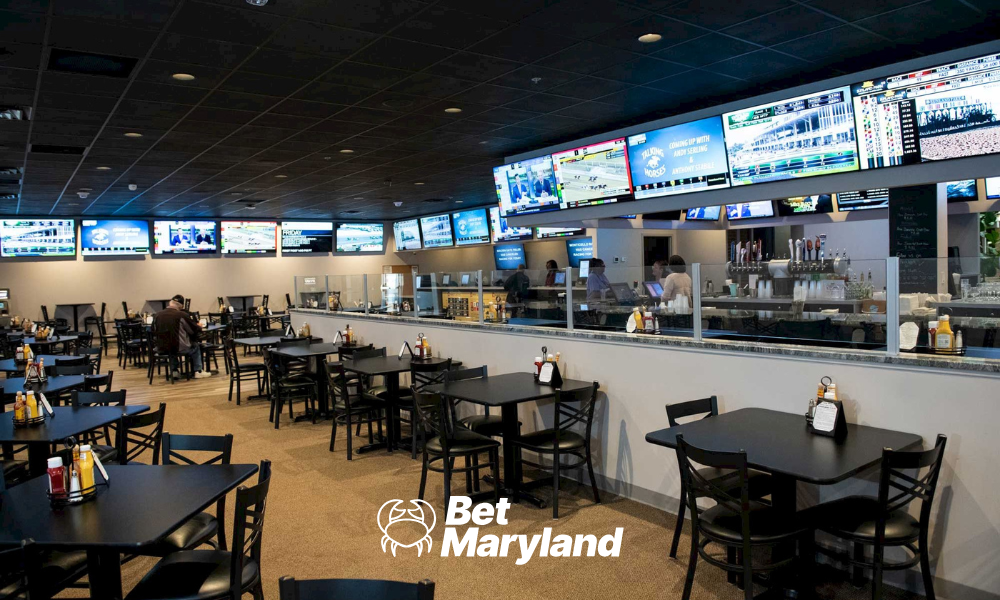PITTSBURGH — Entering 2024, proponents of legalized online casinos were optimistic about Maryland becoming the eighth state to do so. A year ago, an effort to pass a Maryland online casinos bill failed in the state legislature. However, lawmakers agreed to fund a study to determine the impact such iGaming apps would have on the Old Line State.
The hope was that the study would help garner support from delegates and senators in Annapolis. However, opponents of Maryland iGaming zeroed in on aspects of the report, such as the potential for job losses and fewer patrons at brick-and-mortar casinos. There were also questions raised about increases in problem gambling issues created by online slots and table games.
A bill passed the House in March, but Senate leaders were cool to the measure and allowed it to die at the end of the session, so efforts to legalize Maryland iGaming failed to materialize. Now, lawmakers who led the fight to let voters decide on legalization are gearing up for another go in 2026.
“I think it’s good odds that we will have something on the ballot,” Del. Pam Queen, D-Olney, told BetMaryland.com last month at the National Council of Legislators from Gaming States (NCLGS) Summer Conference in Pittsburgh.
However, she added that Maryland iGaming being on the ballot and getting approved “may be two different questions” as she hopes proponents will have sufficiently answered the questions from labor and others with concerns.
Campaign Needed To Push Maryland iGaming
The day before Queen spoke with BetMaryland, she and other lawmakers sat with gaming stakeholders to hear an update on the progress NCLGS has made with model iGaming legislation it hopes to present to lawmakers interested in pursuing legalizing online casinos starting next year.
One of Queen’s colleagues took to the stage at the end of that session. Maryland state Sen. Ron Watson, D-Upper Marlboro, gave a debriefing to attendees about what happened in Maryland with the proposal this year. Watson was one of the most vocal proponents for passing iGaming. However, he said a groundswell of opposition emerged once the bill was filed. Unions bussed members to the statehouse and put leaflets under lawmakers’ doors every day, urging them to not take their jobs. Watson said there was nothing to effectively counter that to sway key legislators.
“If you really want iGaming to pass, you need to have a campaign,” he told the crowd. “Act as if it is a ballot referendum to really push this thing forward. The legislator literally is just the quarterback. All we do is introduce the bill, but you need a whole team behind this type of legislation. And I’m suggesting a marketing team to really make this thing happen.”
Watson also spoke about some “self-inflicted wounds” that diminished iGaming’s chances in Maryland. For example, supporters made sure that historically black colleges and universities (HBCUs) would receive data for their researchers to study iGaming’s impact. However, Watson said one researcher used that data to deride the measure.
Watson: Cordish Key To Maryland iGaming Chances
After his debriefing, Watson spoke with BetMaryland to go in-depth on some of the issues that led to iGaming’s failure in 2024. One such matter was the opposition raised by The Cordish Companies, a Baltimore-based development firm that has several gaming properties in its portfolio. That includes Live! Casino & Hotel Maryland in Hanover, near Baltimore-Washington International Airport.
Cordish officials testified against the House version of the iGaming bill, and the Anne Arundel Chamber of Commerce, which counts the Live! Casino as a top sponsor, commissioned a report that determined iGaming would cost the state 1,200 jobs and more than $65 million in annual wages.
Watson said he had yet to speak to Cordish executives, but he wants that to happen because the company’s support will be vital moving forward.
“It really, really is, ‘What would Cordish Companies need to get on board?’” Watson explained. “And I don’t know what that is. I just don’t know. When I talked to them initially, they had grand plans to build out more of their property. Make it more resort-style, get a pool out there. And offer some new amenities. But their thought was that if we went to iGaming, they’d have to change their model. Less folks will come into their facility, which means that their plans really can’t go forward in the way they intended, and I get that. So we just have to talk about it, figure it out.”
Stay with BetMaryland.com for more industry coverage plus Maryland sportsbooks information.










